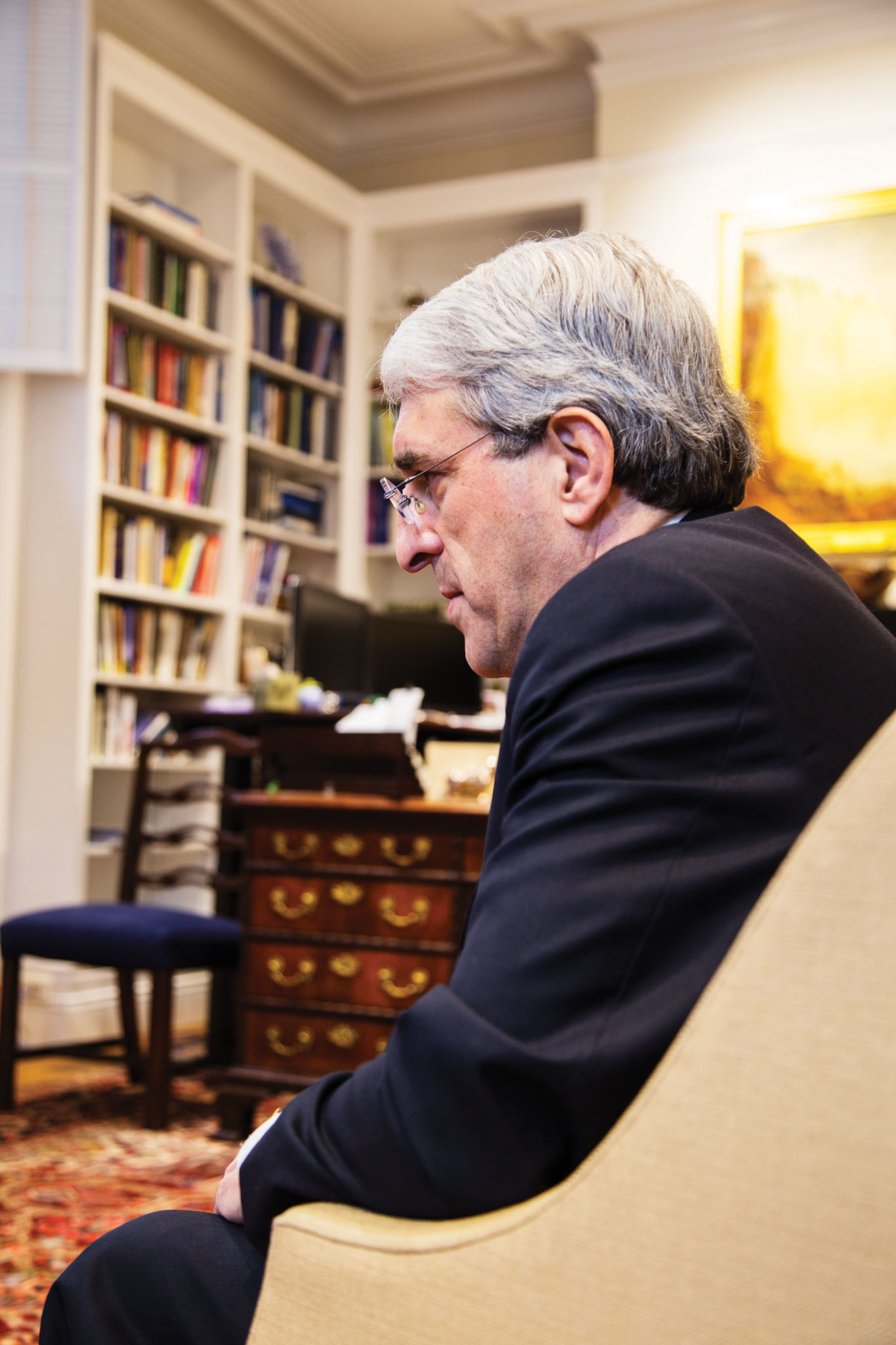
As the Department of Education moves to institute a new guidance to protect the rights of men accused of sexual misconduct on college campuses, University President Peter Salovey affirmed that Yale will maintain its current policies for addressing sexual misconduct — but will readdress the issue if the new proposal has the enforcement power of a law.
In August, The New York Times reported that Secretary of Education Betsy DeVos was preparing new policies for campus sexual misconduct adjudication. The new guidance mandates that schools only adjudicate formal complaints filed through proper authorities and for conduct that allegedly occurred on their campuses. Many of the policies in the leaked proposal — including a requirement for a cross-examination between the accuser and the accused — directly contradict the University’s policies on sexual misconduct. If formalized, the new policies, though not yet published by the Department, could put Yale at risk of losing federal funding.
In an interview with the News, Salovey said he was confident that the University’s current policy on sexual misconduct is more effective than the Department of Education’s proposal. But he offered a tentative commitment to maintain the current procedures. Although Yale administrators will wait to see what the Department institutes as a law, the University will do its best to maintain its current policies, Salovey explained. But the decision to amend Yale’s procedures is also dependent on whether the new guidance has the enforcement power of a law, Salovey said.
“We certainly think the approach we have taken, while not perfect, is effective and appropriate,” Salovey said. “Our plans are to continue on the path we are on. … The approach we have taken is more appealing to me than some of what I’ve been hearing about … what the Department of Education is considering.”
Currently, Yale investigates any alleged incidents of sexual misconduct brought to the attention of first-year counselors or other individuals designated as mandatory reporters on campus. But under the new proposal obtained by The Times, the University would only be obligated to investigate formal complaints reported by victims to “an official who has the authority to institute corrective measures.”
Unlike previous guidance documents with no enforcing power, the new policies will have the force of law and can go into effect without an act of Congress, after a public comment period. It is still unclear when the Department of Education will seek public comments before formalizing the policies.
Salovey declined to comment on Yale’s risk of losing federal funding if it maintains its policies despite the potential new guidance.
In September 2017, DeVos rescinded the Obama administration’s 2011 “Dear Colleague” letter, which established a preponderance of evidence standard for campus sexual misconduct cases. In response, administrators reaffirmed Yale’s commitment to its current procedures. Dean of Yale College Marvin Chun told the News at the time that DeVos’ plan to change Obama-era guidelines was “troubling.”
But DeVos’ 2017 rescission had little enforceable impact on Yale. According to Katharine Baker, a legal expert on campus sexual assault, most universities, like Yale, have maintained their Obama-era policies for addressing sexual misconduct despite the new guidelines.
“DeVos is changing what colleges must do in terms of addressing sexual misconduct, but colleges can continue to do much more than what the guidelines encourage,” Baker said. “And given that many schools found out during the Obama era that sexual misconduct is a bigger problem than they anticipated, they are not likely to revoke all the initiatives and policies instituted in the past years. Nobody wants to say that sexual misconduct is not a problem on college campuses.”
Still, Baker said, even if the changing guidances have little impact on Yale’s policies, last year’s withdrawal of the “Dear Colleague” letter has emboldened more students who have been disciplined for sexual misconduct to sue the University.
In an interview with the News, Michele Dauber, a Stanford law professor and Title IX expert, commended the University’s commitment to maintaining its current policies for addressing sexual misconduct.
Still, not everyone interviewed by the News criticized DeVos’ new proposal. Stuart Bernstein — an attorney who represents students accused of sexual misconduct — praised the newly proposed policies and suggested that universities should take a more active role in following the guidelines.
“So far, universities have ignored the repeal of the ‘Dear Colleague’ letter and other measures to protect both the accuser and the accused,” Bernstein said. “Of course, no one should be assaulted or harmed, but the bottom line is that you need to have protections and safeguards for respondents as well. Just because someone is accused does not mean that they are responsible.”
Between Jan. 1 and June 30 of this year, Yale’s Title IX office received a record 154 complaints.
Serena Cho | serena.cho@yale.edu







